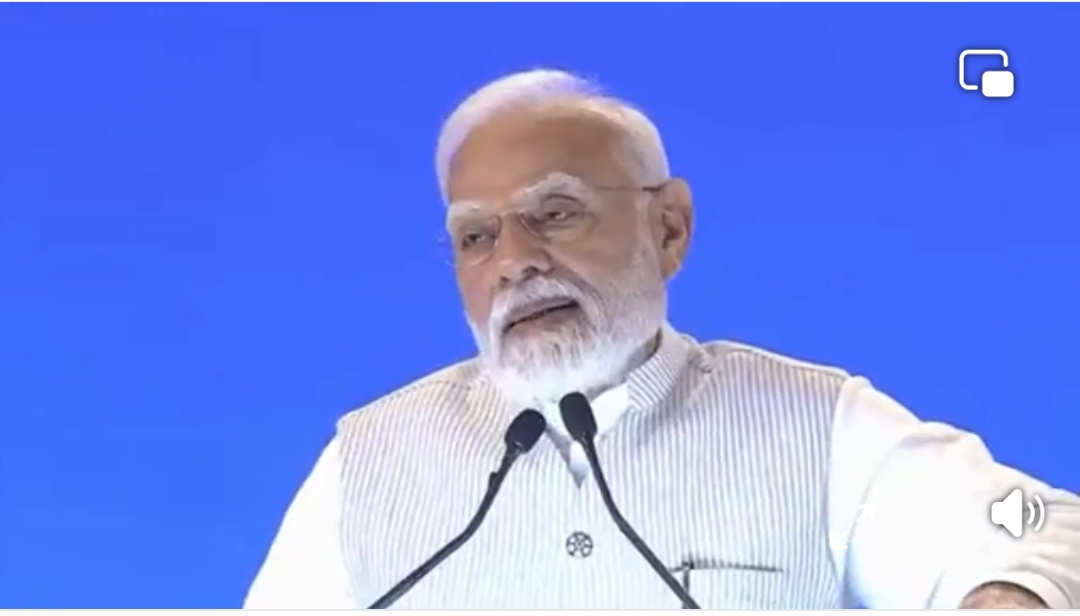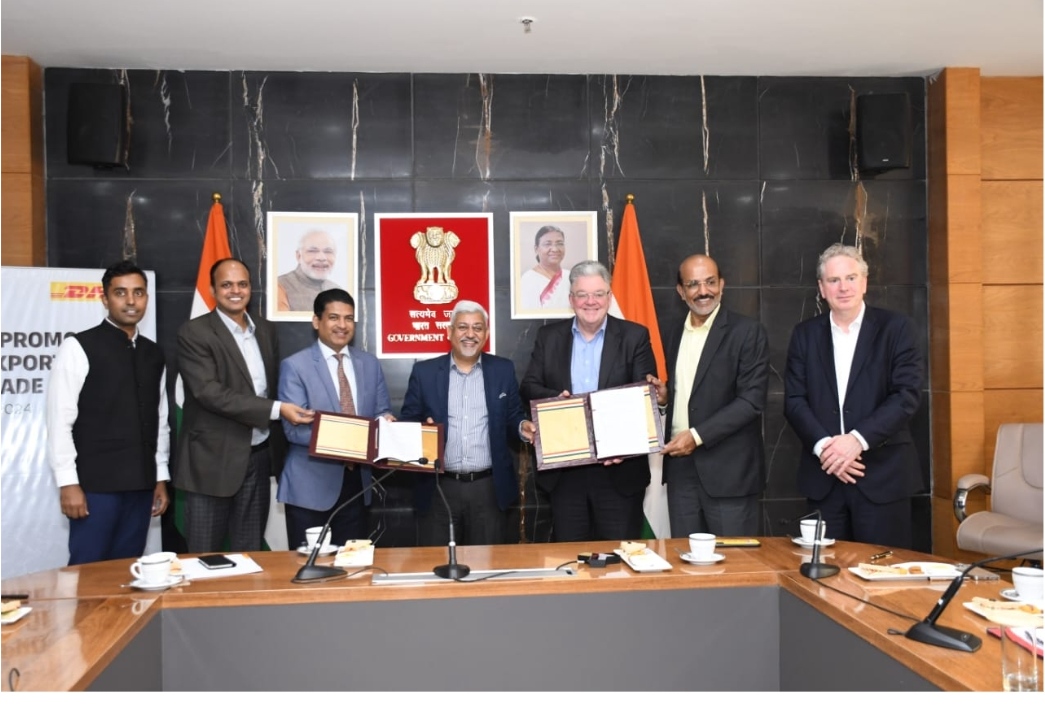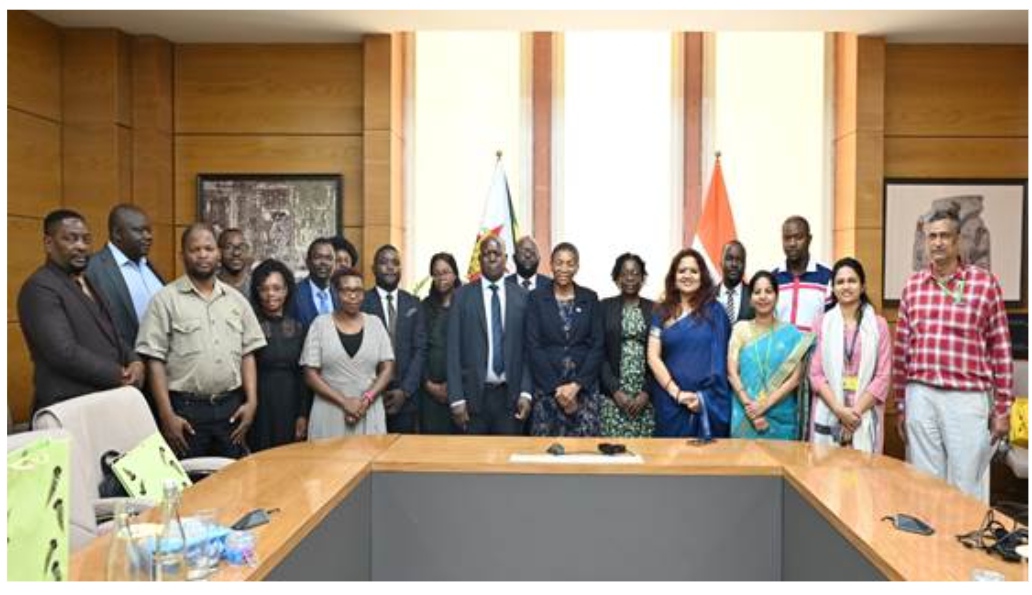PM Modi Addresses YUGM Innovation Conclave, Charts Roadmap for India as a Global Innovation Powerhouse.
New Delhi:
Prime Minister Narendra Modi today delivered a landmark address at the YUGM innovation conclave held at Bharat Mandapam, New Delhi, laying out a bold and visionary roadmap to transform India into a global innovation and research powerhouse. The conclave marked a unique convergence of leaders from government, academia, industry, and the startup ecosystem, reaffirming the country’s commitment to developing future technologies for a self-reliant and innovation-led India.
Speaking at the event, the Prime Minister emphasized that empowering youth with cutting-edge skills, fostering innovation at scale, and transforming education are central to India’s goal of becoming a developed nation by 2047. “Our endeavour is to empower the youth with skills that make them self-reliant and position India as a global innovation hub,” he said.
Modernizing Education for the 21st Century
Highlighting education reform as a key pillar of national progress, PM Modi stated, “We are modernizing the country’s education system according to the needs of the 21st century.” He noted the introduction of the New National Education Policy (NEP), which aligns Indian education standards with global benchmarks. The policy has led to the creation of new curricula, digital infrastructure, and multilingual educational resources through platforms like PM e-Vidya and DIKSHA, offering content in over 30 Indian languages and seven foreign languages.
He lauded initiatives such as One Nation, One Subscription, which has enabled students and researchers in higher education to access world-class journals, enhancing India’s research ecosystem. “It has given the youth the confidence that the government understands their needs,” he remarked.
Driving Research and Innovation from Campus to Market
PM Modi underscored the transformation of Indian university campuses into dynamic hubs of innovation. “India’s university campuses are emerging as dynamic centres where Yuvashakti drives breakthrough innovations,” he declared. He cited key achievements including:
- A 422-meter hyperloop test track at IIT Madras
- Development of indigenous MRI machines
- Cutting-edge nanotech and ‘brain on a chip’ technology by IISc Bangalore
- The rising presence of Indian universities in global rankings, growing from 9 institutions in 2014 to 46 in 2025
He also emphasized the importance of speeding up the transition from “idea to prototype to product,” stating that research should translate swiftly into societal benefit. To this end, he cited the establishment of Research and Development Cells in nearly 6,000 higher education institutions and the doubling of India’s R&D budget from Rs. 60,000 crore in 2013-14 to over Rs. 1.25 lakh crore today.
Fostering a Culture of Talent, Temperament, and Technology
Highlighting the “trinity of Talent, Temperament and Technology,” PM Modi showcased initiatives designed to expose students to innovation early, including the expansion of Atal Tinkering Labs from 10,000 to 60,000 labs and the PM Vidya Lakshmi financial aid scheme. He noted the establishment of internship cells in 7,000+ institutions, enabling students to gain practical experience.
He emphasized, “Every effort is being made to develop new skills among the youth, whose combined talent, temperament, and technological strength will lead India to the pinnacle of success.”
Vision for AI and Deep Tech Leadership
PM Modi reiterated the government’s ambition to make India a global leader in artificial intelligence and emerging technologies. “We are working on the vision of ‘Make AI in India’, and our aim is to ‘Make AI work for India’,” he said. He outlined steps taken under the India-AI Mission, including building national AI infrastructure, establishing AI Centers of Excellence, and expanding seat capacities at IITs.
He also pointed to strategic efforts in quantum computing, space technology, health tech, and synthetic biology—urging academic institutions, industries, and investors to collaborate to fast-track research-to-market journeys.
Celebrating Collaboration: YUGM as a Catalyst
The Prime Minister congratulated the Wadhwani Foundation, IIT Kanpur, IIT Bombay, and other stakeholders for launching key initiatives, including:
- Superhubs at IIT Kanpur (AI & Intelligent Systems) and IIT Bombay (Biosciences & Health)
- The Wadhwani Innovation Network (WIN) at top research institutions
- Strategic funding collaborations with the Anusandhan National Research Foundation (ANRF)
He especially praised Dr. Romesh Wadhwani for his journey from adversity to achievement and for dedicating his success to India’s education and innovation ecosystem.
“Science and technology should serve as mediums for service,” PM Modi said, quoting ancient Sanskrit scriptures. He expressed confidence that with efforts like YUGM, India’s innovation ecosystem would gain renewed momentum and global visibility.
Aiming for Viksit Bharat@2047
Concluding his address, PM Modi emphasized that the journey to becoming a developed India hinges on creating a robust, inclusive, and future-ready innovation ecosystem. He called upon all stakeholders to contribute actively to the mission of Viksit Bharat@2047, saying that youth, guided by the right vision and resources, will transform India into a global leader in innovation.
Union Ministers Dharmendra Pradhan, Dr. Jitendra Singh, Jayant Chaudhary, and Dr. Sukanta Majumdar were also present at the conclave.



